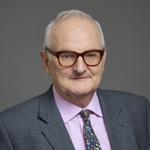Out-of-school Education: Hackney
(asked on 10th January 2018) - View SourceQuestion to the Department for Education:
To ask Her Majesty's Government, further to the Written Answer by Lord Agnew of Oulton on 5 January (HL4335), what evidence they have for the statement that “there are far fewer unregistered schools than many had believed to be the case”, in the light of a recent report by the London Borough of Hackney Scrutiny Commission which stated that between 1,000 and 1,500 Charedi boys were in unregistered schools in that Borough; and what assessment they have made of Hackney Council’s findings in this regard.
The evidence for the government’s statement is in Her Majesty’s Chief Inspector’s annual report, attached, published in December 2017, which includes statistics about the work of Ofsted’s unregistered schools team. Over an 18 month period, the Ofsted team looked into many possible settings but determined that only 38 of them had been operating as unregistered schools, and secured that, as at August 2017, 34 of those 38 settings ceased operating illegally.
We are aware of the recent findings in the Borough of Hackney, which refer to between 1,000 – 1,500 Charedi boys in out-of-school settings in that borough. The report made clear that these were yeshivas, offering religious teaching, in settings that do not meet the criteria to register as independent schools, but were operating as out-of-school settings.
The government’s Counter Extremism Strategy, published in 2015, set out plans to introduce a new system of oversight for out-of-school settings which teach children intensively, including part-time religious settings. We undertook a call for evidence to learn more about the range of settings, and to determine the potential scope and impact of introducing a regulatory system.
As well as considering the views of those that responded to the call for evidence, the department has been working with a range of stakeholders to strengthen our understanding of these settings, which vary considerably in their characteristics and the activities and education they offer. We will make an announcement on the outcome shortly.
It is Ofsted, rather than local authorities, that have powers in relation to unregistered schools, to collect evidence to support prosecutions. The department and Ofsted operate a joint team on unregistered schools and work together closely on all relevant issues, including on the extent of Ofsted’s powers, which are always kept in view.

